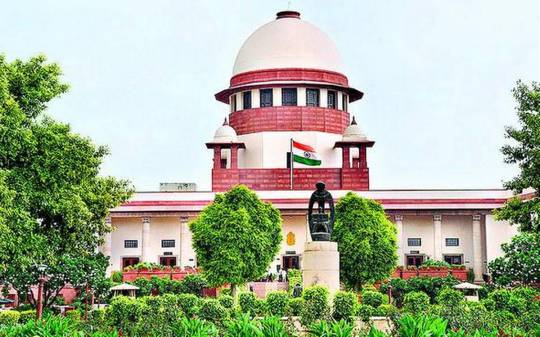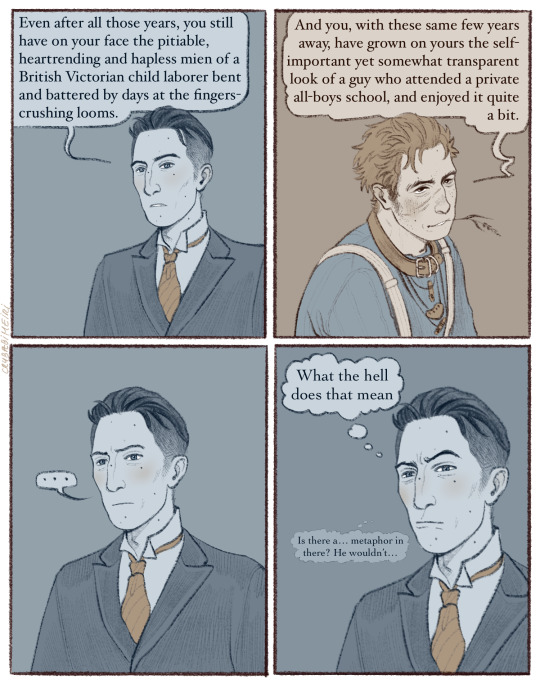#Inheritance law
Explore tagged Tumblr posts
Text
The Napoleonic Code
The Napoleonic Code, also known as the Civil Code of 1804, is one of Napoleon Bonaparte's most significant and enduring legacies. It is a comprehensive system of laws that aimed to reform and standardize the legal framework of France. Before the Napoleonic Code, France's legal system was a patchwork of regional laws, feudal customs, and royal edicts, which created inconsistency and confusion. The code had a profound impact on not only France but also many other countries, serving as a model for modern legal systems around the world.
Key Features of the Napoleonic Code:
Equality Before the Law:
The Napoleonic Code ensured legal equality for all male citizens, meaning that laws would apply equally to everyone, regardless of their birth, class, or wealth. This abolished the feudal privileges that had been enjoyed by the aristocracy under the old regime.
It established the principle that nobles, clergy, and commoners were all subject to the same laws.
Abolition of Feudalism:
The code abolished feudal obligations and privileges, including serfdom and manorial dues, ensuring that people were free from feudal bonds and that property rights were more clearly defined.
Civil Rights and Liberties:
The code affirmed individual rights, such as the right to own property, the freedom of contract, and the right to be free from arbitrary arrest and imprisonment.
It supported the idea of religious freedom, although it retained certain restrictions on freedom of the press and political dissent.
Property Rights:
The code placed a strong emphasis on the protection of private property. Property ownership was seen as a fundamental right, and the code established clear guidelines for acquiring, transferring, and inheriting property.
The inheritance laws introduced by the code were particularly significant: they established that property must be divided equally among all heirs (children) upon the death of a property owner, rather than allowing for primogeniture (where the eldest son inherits everything). This was intended to prevent the accumulation of wealth in the hands of a few families.
Secular Law:
The Napoleonic Code was secular, separating the legal system from the influence of the Catholic Church. It made civil marriage the only legally recognized form of marriage, and divorce was legalized, although with more restrictions than under earlier revolutionary laws.
Family Law and Patriarchy:
The code placed significant emphasis on the family, which Napoleon saw as the foundation of society. It gave fathers considerable authority over their children and wives.
Women were largely subordinate under the code. A wife was legally required to obey her husband, and her ability to manage property or engage in legal contracts was limited without her husband’s permission. Women also had fewer rights in divorce and child custody matters.
Codification and Clarity:
One of the Napoleonic Code’s most revolutionary aspects was its clarity and simplicity. Napoleon sought to replace the confusing and inconsistent legal systems of pre-revolutionary France with a single, coherent, and easily understandable legal framework.
The code is written in clear, accessible language, making it more understandable for the public, rather than being limited to legal professionals.
Merit-Based Society:
By ensuring equality before the law and abolishing hereditary privileges, the Napoleonic Code supported a merit-based society, where individuals could advance based on talent and achievement, rather than birth or status.
Influence of the Napoleonic Code:
The Napoleonic Code had a significant influence not only in France but also abroad. Napoleon implemented it in the territories he conquered, and its principles spread to parts of Italy, Belgium, the Netherlands, Poland, Germany, and Spain. Over time, many other countries, including those in Latin America and parts of Africa and the Middle East, adopted or adapted aspects of the code into their own legal systems.
Global Legacy:
The Napoleonic Code is widely regarded as one of the most influential legal documents in the world. It served as the basis for civil law systems in many countries, particularly in continental Europe and Latin America.
Its emphasis on equality before the law, property rights, and a secular legal framework has shaped modern legal traditions in many countries. It is still the foundation of civil law in France and has been a model for legal codes around the world, particularly in countries with civil law systems, as opposed to common law systems (like the UK or the US).
The Napoleonic Code was a transformative legal document that codified the principles of the French Revolution—equality before the law, meritocracy, and secular governance—while also promoting a strong, centralized state and patriarchal family structure. Its impact extended far beyond Napoleon's reign, influencing modern legal systems across Europe and beyond, and it remains a foundational element of civil law to this day.
#Napoleonic Code#Civil Code of 1804#Napoleon Bonaparte#French legal system#Equality before the law#Legal reform#Abolition of feudalism#Private property rights#Meritocracy#Secular law#French Revolution#Family law#Patriarchy#Civil law system#European legal history#Codification of law#Inheritance law#Divorce law#Legal clarity#Global legal influence#new blog#today on tumblr
3 notes
·
View notes
Text
Sol Fertilis: Jus Civile
Inheritance Law/Jus Civile
In Sol Fertilis, the laws of inheritance are important as lineage is deemed essential for family and the hierarchy. This law is called Jus Civile, which grants individuals the right to pass down their property and possessions to their heirs. This also involves a will and testaments, also called Testamentum. This is primarily for the upper and middle ranks.
Instead of purely parent to eldest, it would be the parent to eldest as the same rank, regardless of gender. For example, if an Alpha dies, their second-eldest child, who is also an Alpha, is entitled to most of the property, even if they have an older Omega sibling. This is the case for Deltas as well. However, the inheritance law would be different if the child is too young.
There are variations of Jus Civile. One is that their grandchildren would get the property if none of their children are born of the “dominant ranks”, which are Alpha and Deltas.
The second is giving their in-laws of the same rank the property, such as a Delta Plus businessman giving their Delta Plus son or daughter-in-law their estate when they passed. However, they had to be already married to inherit their late in-law’s property, or their children would inherit as their spouse maintained the estate. Another variation is that adopted children are allowed to have an inheritance since they are a part of the family.
If all of the children are too young to take the inheritance, their money will be put into a trust until they are of age or in marriage, while their living parent would temporarily have control of their late spouse’s titles and property for maintenance. However, this also applied to the “submissive ranks”, such as Beta Plus, Gammas, and Omegas. This is known as the Widow Loophole.
The Widow Loophole is a legal loophole that allows an Omega to take their deceased Alpha spouse’s title and position. These can range from estates to businesses to even leadership positions in every sector. This means that an Omega can take their late Alpha spouse’s position as CEO if they were made aware of it. This loophole only applies if the widow/er still has at least one underage child in their care.
As this is set in stone on the Jus Civile, the loophole is unable to be closed and the widow/er can take the position without anyone challenging it. Also, the widow/er can still have the estate and position if they are allowed to remarry.
#sol fertilis#omegaverse#dystopian omegaverse#dystopic#dystopian#dystopia#omegaverse au#inheritance law#jus civile
3 notes
·
View notes
Text
Historical Inheritence Question:
In 1800s England (before the Married Women’s Property Act of 1882), what happened if a man died while his only son was still a small child?
Would there be a sort of “regency” for the man’s property? Who would control the money while the son was a minor? Does the deceased man’s wife or eldest brother have control until the son is old enough? Does who has control depend on if there’s a title/entailment/etc?
#historical#historical question#regency England#Victorian England#inheritance law#Georgian England#primogeniture#I have no clue what to tag this so that people who know the answer will see it
1 note
·
View note
Text
0 notes
Text
Filius Nullius: The Forgotten Child of Law
“Filius nullius,” a Latin term translating to “son of no one,” denotes children who were not legally recognized by a father. This concept, rooted deeply in Roman law, has profound implications in the historical context of child legitimacy and inheritance rights, affecting societal structures and legal doctrines to this day. The Origins of Filius Nullius The term originates from a time when…
0 notes
Text
Copyright on a written work is officially a kind of asset, right? So if an author dies without any clear inheritor, would their copyrights be assigned to the state or something?
1 note
·
View note
Text
"Inheritance Equality and Muslim Law: A Legal Conundrum”

Tarsem v. Dharma & 2 others
Civil Appeal 2497 - 2498/2024
Before the Supreme Court of India
Heard by Hon'ble Mr. Justice C T Ravikumar J & Hon'ble Mr. Justice Rajesh Bindal J
#inheritancerights #muslimlaw #restrictionsonwill #supremecourtofindia
I wanted to share some thoughts on an important legal matter which is expected to be addressed by the Apex Court on July 25, 2024.
The issue touches on #Constitutional and #Islamiclaw in India.
Here are the key points:
1. Equality in Succession for Muslim Women: The question arises whether Muslim women have the right to claim equal inheritance under Articles 14 and 15 of the Indian Constitution, especially in light of Article 44 which aims for a uniform civil code.
2. Testator Rights Under Muslim Law: Can a Muslim, governed by Islamic law, be entitled to execute a Will of his entire estate left, according to his wish?
3. Limitations on Wills in Muslim Law: Can a Muslim may execute a will to the extent of one-third of his estate in favor of any or all of his legal heirs without the need for consent from other heirs?
Under Islamic law, a Muslim can distribute property through gifts, wakf (charitable endowment), or a will. However, there are restrictions:
A will can only dictate the distribution of up to one-third of the total property.
Beyond this one-third, the consent of the legal heirs is required.
The one-third limit is calculated after settling debts and funeral expenses.
In the current case, the late Hazi's will, favors three of his sons—Dharma, Gulzar, and Karam Chand—excluding Tarsem.
As per Islamic Law, the testator can bequeath one-third of his estate to a third party, with the remaining two-thirds going to the legal heirs equally, unless the heirs consent to a different distribution.
1 note
·
View note
Text
I get this impression that House of the Dragon doesn't get that "named" heirs aren't really the norm in Westeros. If it were that easy for someone to just give everything to their favorite child, Randall Tarly wouldn't have needed to force Sam to go to the Wall and Tywin could have simply chosen Cersei over Tyrion as heir of Casterly Rock.
If we look at the history Westeros borrows from, the concept of "naming" heirs wasn't really a thing in medieval England. Landed gentry didn't have direct say over the order of succession until the Statute of Wills in 1540. Before then, land and subsequent titles could only be inherited through agnatic primogeniture.
Agnatic primogeniture prioritized the living, eldest, trueborn son. Claims can only be passed on patrilineally. This means that a grandaughter can inherit a claim of her grandfather's titles through her father, but a grandson cannot be given the same through his mother. However, if his mother finally does have land and titles under her own name (not under her father's), only then does her son and other children enter the line of succession.
The reason it was like this was because it kept land and titles under one family. Daughters are less preferred because when they are married, they become part of their husband's family — meaning that any titles they receive will be inherited through a new line. This wouldn't be an ideal situation because it gives two families claims to the titles. The more claimants there are, the more unstable the hold the owner has.
In other words, agnatic primogeniture was practiced for stability. Because back in the day, titles weren't just property or land. They came with governorship over a people, so a stable and predictable transfer of titles was necessary to avoid civil conflicts and questions of legitimacy.
A landed lord or lady wasn't given the right to designate heirs for a few reasons:
Most of them were vassals who oversaw the land in the name of someone higher up. It technically isn't even theirs to give away (see: feudal land tenure).
The wishes of a human being are less predictable than having a determined line of succession based on birth order. What if he becomes incapable of declaring an heir either through illness or disability? What if he's captured and a bad actor forces him to name this person heir under threat of violence?
People died unexpectedly all time. This was before germ theory and modern medicine — child mortality was extremely high. With no refrigeration technology, a single poor harvest could mean dying from starvation. Bandits, cutthroats, and raiders were a constant threat. They could not afford to rely on a person choosing a different heir every time the old heir drops dead, because the landed lord/lady could die just as suddenly.
Even 21st century families stab each other in the back over who gets grandma's house — so imagine having an uncertain line of succession in the middle ages over a life-defining lordship and without a modern-day court system to mediate.
Going back to HotD, whenever Targaryens did go against the established line of succession, they could only have done it by consolidating the support of their vassals. Only royalty seemed to have the power to bend agnatic primogeniture, but even then they were beholden to it.
When Jaehaerys I ascended the throne over Aerea, it was mainly because there were those who saw Maegor the Cruel's act of disinheriting Jaehaerys as null and void. This restored Jaehaerys place in the line of succession above Aerea.
And when Rhaenys was passed over for Baelon, Jaehaerys had to convene his lords and offer compelling reasons as to why — her young age, her lack of an heir, her Velaryon last name, etc. It wasn't a given that just because she was a woman that she was ineligible. If he was doing it purely out of misogyny, he still had to legally justify his misogyny in order to strip away her rights.
Even after consolidating support, the book mentions Jaehaerys I and Viserys I's respective hold on the crown was still weakened. Even though their claims were backed by reasons cosigned by a powerful majority, they still had to ensure the security of their rule through other means. There were people who doubted their right to rule, and those people had to be placated with gifts (by Viserys) or intimidated into submission (by Jaehaerys).
So we come to Viserys I who never gave his vassals a reason why Rhaenyra should supercede his three sons other than, "I said so." Had he convened with his lords and maybe made the argument that a first marriage takes precendence over a second one, then maybe he could have set a new precedent and gathered support.
But no, he didn't. He relied on the power of his own words and the lords' personal oaths — oaths that he didn't exactly plan how he would enforce posthumously.
And the Realm did not choose to adopt a different succession law after Jaehaerys's designation of Baelon in 92 AC or the Council of Harrenhal choosing Viserys on 101 AC. If those two events did change anything, it was that now women were exempt from the line of succession for the crown and only the crown. It did not set the precedence that monarchs could freely choose heirs. It did not upend the whole system; it only made a tweak, as most lawful policy-changes do, by carving out at an exception. It was a committee, not a revolution.
Before and after the Dance, no other monarch, lord, or lady "declared" an heir that went against agnatic primogeniture, save for Dornish who have cognatic (equal-gender) primogeniture instead. Ramsay had to get rid of Roose Bolton's living trueborn son AND be legitimized by the crown in order to be recognized as heir (only a crowned monarch can legitimize baseborn children which is another world-building pillar a lot of people miss). Randall basically had to force Sam to abdicate because he wanted his younger brother to inherit instead. And of course, Tywin despite his intense hatred of Tyrion is forced to acknowledge him as his heir.
The rigidity of the line of succession is a major and constant source of conflict in the series, so it baffles me that people really thought that characters could just freely choose their heirs. That's why we have a civil war. It wasn't a misunderstanding. It's the expected consequences of someone carelessly going against a foundational tenent of the society they inhabit.
#long post#a song of ice and fire#house of the dragon#hotd#had to write this up cause i saw someone insisting fire and blood showed “naming heirs” was the succession law when that's patently untrue#asoiaf#agnatic primogeniture#medieval inheritance law#a lot of character conflict stems from the fact that they can't just choose an heir#hotd critical#Phew and this is the last time I'm writing about this topic because i do not want to invite more fandom discourse
939 notes
·
View notes
Text



[ <3 ] >>
#the sims 4#ts4 render#the law of inheritance#maverick#i have no idea other than my brain said story and render
141 notes
·
View notes
Text
After telling Home he forgave him and begging him to come back to eat the food Peach made him, the last thing Peach said to Home before Home returned to his body was a plea for Home to come back for Pang.

Home isn't just a sugar daddy.

He is Pang's best friend.





When Home and Pang thought they lost their best friend, these normally loud and theatrical characters became quiet.


Because they are the same.

Which is why Home noticed what was happening with Pang even when her own brother didn't.





People mistake Home and Pang's behavior for silliness and dismiss their contributions, but Home and Pang actually try really hard all the time to fix problems even if their approach is out of the norm.


They are besties and siblings.

And Peach knows that Pang has already lost enough family.

So Peach made one last attempt to get through to Home by reminding him that even if he didn't want to come back for Peach, he had to come back for their little sister.

Pang and Home understand each other without having to speak a word.

They get each other when nobody else does.


And Peach knows that.

So even if the boys were actually upset with each other, they don't want to see Pang upset.

She just wants the best for them.

And they want what's best for her.

Pang has two brothers who love her dearly.

So much, in fact, that they both came back for her.


#peaceful property#I am unwell about this show#it's all I think about#my brain is on two modes: jack and joker and peaceful property#that's it!#everything else is confetti#pang and home are best friends#and the best siblings#home really inherited a sister and a boyfriend thanks to these ghosts#pang isn't just his sister-in-law#she was the final push for him to get back in his body#I need the last four episodes now before I go crazy!
297 notes
·
View notes
Note
What do you think of Harry getting Grimmauld Place? I seen quite a few who believe that it should be Draco’s since It’s Draco’s family’s history, Draco’s family tree and Kreacher spent Half Blood Prince going on about how he wanted Draco instead.
I guess my first question would be - how did Sirius get the house in the first place, even after being disowned? It's not a women-can't-inherit thing : Dumbledore says the Blacks traditionally have a male heir, but he's also expecting Bellatrix to just waltz in and claim ownership the second Sirius dies.
(if the House HAD to go to "the next male with the name of ‘Black" - which it doesn't because Harry Potter inherits - then all Draco has to do is start going by Draco Malfoy-Black, and boom it's his.)
Personally I think Sirius' disinheritance must have gotten reversed at some point. Regulus lived a little longer than his father, and by then he'd become disillusioned with Voldemort. He might have felt guilty about what happened to his brother and wanted to make amends, even if only symbolically. Or maybe Walburga heard that Sirius got arrested for being a secret Death Eater and killing muggles, and decided that he was all right after all, and wrote him back into the will.
Magical houses do apparently sometimes reject the people who (on paper) are their rightful owners, which throws an interesting wrench into things. Dumbledore thinks that even though Sirius willed Grimmauld Place to Harry, it's possible the Black properties might have some secret inheritance criteria like "pure blood" built into the protective enchantments. We also know that Umbridge can call herself Headmistresses of Hogwarts all she likes, but the *building* doesn't accept her, and bars her from the headmasters office.
Maybe the godparent/godchild relationship has some sort of intense magical and/or legal significance that means a lot to an old house like Grimmauld place. OR maybe Sirius found a way to hack the wards and convince the house that Harry was his illegitimate son or something. (I like this option because it's funny, and seems a very Sirius sort of solution. After all, he was extremely good at magic. He could have managed it.)
Actually that's not a bad premise for a fic. You could have it so Harry inherits the house in Book 6, and everyone is looking at him sideways because ... the process went so smoothly, the house and the house elf are so perfectly attuned to him, the only way that's magically possible is if he is blood-related to the house's last master. There's a whole genre of fics where it turns out Harry's real father is Snape. Why not Sirius?
But, it does make sense that *in universe* Harry's claim to the house might be considered a little shaky, because it's a Black property and he's not a Black. If Draco wanted make a stink about it... yeah he probably has a leg to stand on, legally. But, post-war Draco would need a really, really good reason to do that. He's not stupid enough to go directly head-to-head with Harry "Chosen One" Potter.
#hp#hp worldbuilding#the black family#hp inheritance law#draco malfoy#harry james potter#sirius black
88 notes
·
View notes
Text
Jameson: It's nice to be wanted you know.. Avery: *trying to save both of them from cops NOT BY THE LAW
#the fact that this is basically canon lmaoo#jamie is such a man for that#who doesnt love a hot(and sexy) lil cinnamon roll who has occasional brushes with the law#jameson hawthorne#avery grambs#avery kylie grambs#grayson hawthorne#the inheritance games#nash hawthorne#xander hawthorne#lyra kane#tig#averyjameson#lyra catalina kane#lyrason#grayson x lyra#lyra x grayson#gigi grayson#savannah grayson#rohan tgg#rohan tig#the grandest game#tgg#the games untold#jlb#jennifer lynn barnes
93 notes
·
View notes
Text
Welcome to Alzayat International Law Firm – Egypt’s Leading Legal Experts
At Alzayat Law Firm, we are proud to be Egypt’s first international law firm, offering world-class legal services with a strong focus on inheritance law, estate planning, and cross-border legal solutions.
Who We Are
With over 25 years of legal excellence, Alzayat Law Firm has built a reputation for trust, discretion, and success. Our team of top-tier attorneys provides expert guidance in navigating complex legal matters in Egypt, Switzerland, and beyond.
Our Expertise
✔ Inheritance Law – Protecting your rights in Egypt & abroad
✔ Cross-Border Legal Solutions – Ensuring seamless legal processes internationally
✔ Corporate & Commercial Law – Assisting businesses with expert legal strategies
✔ Litigation & Arbitration – Resolving disputes with precision and strategy
Why Choose Alzayat?
✅ Confidential & Secure – We prioritize client privacy
✅ Multilingual Legal Support – Arabic, English, French, Portuguese, Hungarian, Russian
✅ Internationally Recognized – Trusted by embassies, high-profile individuals, and business leaders
📍 Need Legal Assistance?
We are here to protect your rights and secure your legal interests. Contact us today:
🌍 Website: alzayatfirm.com
📩 Email: [email protected]
📌 Follow our Tumblr blog for insights, legal tips, and case updates!
#legal#legal services#legal advice#legaltech#•#Lawyer#Law Firm#Legal Advice#Attorney#Law Offic#Alzayat Law Firm#Alzayat International#Egypt Law Firm#Egypt Lawyer#Inheritance Lawyer Egypt#Egyptian Legal Experts#Inheritance Law#Cross-Border Inheritance#Estate Planning#International Law#Legal Consultation#Litigation and Arbitration#Corporate Law#Lawyer in Egypt#Legal Services Egypt#International Lawyer#Swiss Law#Expats in Egypt#Legal Help for Foreigners#Egyptian Legal System
0 notes
Text
theory: sanji has a british accent in opla to show he is from a different place (the north blue) than the others of the crew
#you know i am right#this would also mean british law if i am right everyone#one piece netflix#one piece live action#sanji#one piece#opla#alsoo shanks’ actor is british so him having an accent or not could actually be a hint towards his origin mayhaps#(i know accents aren’t inherited but it could just be a fun lil easter egg)
960 notes
·
View notes
Text
The reason we never see Ouyang Zizhen's mom is because it's Sect Leader Yao.
#“well wouldnt that mean he should inherit 2 sects” none of u know how inheritance laws work#after jiang zhongzhu was very mean to him at the second seige sect leader ouyang went home and cried in his wife (sect leader yaos) arms#mdzs#mo dao zu shi#grandmaster of demonic cultivation#the untamed#ouyang zizhen#sect leader ouyang#sect leader yao
27 notes
·
View notes
Text

the bickering habit
#well i know. personally i know.#''ok oxford goer''-voice of a guy who hasn't stepped foot in an educational institution and is slowly starting to become literate around 20#this is a post-canon thing but not far enough in the future to have fit day 8 ''10 years later'' prompt so... on its own it goes#notkin#notkin pathologic#khan kain#he sees the type of person you are#pathologic 2#i'm of the hashtag opinion patho takes place in the 1910s at the earliest (patho 2 bachelor route looks like it's closer to the 1930s) so#by that point ^ the ''victorian era'' had been over for over 10yrs#while the the industrial revolution; which was marked by the use of child labor AND more legislation over it; predates the victorian era;#it was still ongoing + culminated during queen Victoria's reign (she also implanted many laws to minimize some forms of child labor)#so. victorian orphan + child laborer venn diagram is real and historically-congruent#inheriting the earth patho tag
395 notes
·
View notes